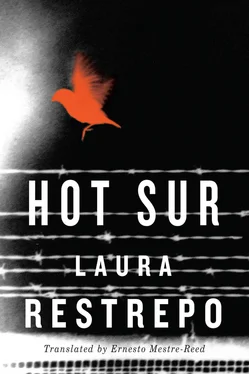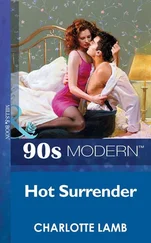Rose jotted down the information and was on his way out, muttering his thanks, when he heard a burst of Pro Bono’s laughter behind him.
“The Olcott Hotel isn’t there anymore,” he yelled. “It shut down years ago. Go, look for her there; see if you find her.”
From Cleve’s Notebook
Paz says that her work is what she most misses from her life before Manninpox. She worked taking surveys about people’s cleaning habits, and the stories she tells are very interesting, and in the end they’re about a social, ethical, and aesthetic hierarchy of the world according to the standards of cleanliness and dirt. I have been pushing her to write about work, about the kind of people she met, but she’s hesitant. At first she completely refused, saying this wasn’t a good topic. I asked her which topic was a good topic, and she said love was, that any novel that wasn’t a love story was boring. That’s what she told me, and in the end she’s probably right. In any case, little by little I’ve gotten her to write about her work. And I see how she’s transformed when she does it. It’s as if the whole human being that she once was, before she was chewed up by authority and justice, rises to the surface. For a time she was taking surveys on Staten Island, and the other day she told this horrific story in class that made us laugh nonetheless. She said she had been knocking on doors in West New Brighton, one of the most foul-smelling neighborhoods on the island because it is right next to what used to be the Fresh Kills Landfill.
Fresh Kills was not only the largest landfill in the history of mankind — it was also the cyclopean monument that outdid all of them, more massive than the Great Wall of China and taller than the Statue of Liberty. This feat was accomplished by dumping thirteen thousand tons of daily garbage on the site for half a century. There is a grisly symbolism that humankind’s most expansive handiwork was this immeasurable mountain of filth, which in the end remains as our American trademark, as a seal that legitimizes our ownership over this entire section of the planet, because the great paradox is that the more we soil things the more we own, and the more we own the more we soil things, and as Michel Serres says, that which is clean belongs to no one. Take an empty hotel room between guests, all cleaned up and disinfected by housekeeping and that will only become Mr. Doe’s Room 1503, or Mrs. Smith’s Room 711, when Doe and Smith leave the mark of their sweat on the bedsheets, the fungi from their feet on the bathtub, their hair in the drain, their cigarette butts in the ashtrays, the packaging and receipts from their purchases in the garbage can, and their drool on the pillowcases. Because that’s the way it is, we only own what we soil, and what is clean belongs to no one. Pushing this logic to its extreme, one can conclude that a great portion of the earth, sky, and water we call America is buried to the hilt with our garbage, our shit, our smells, and waste. That’s why it is ours, more so than because of land titles, and invasions, and aggressive defenses or the actions of border guards. Here we have deposited the filth that generation after generation has come out of or passed through our bodies; I’m referring to industrial amounts of semen, rivers of blood, tons of used Kotex and tissues and condoms, discarded diapers, obsolete televisions and computers, paper napkins, old cars, plastic bags, and rolls of toilet paper. And, above all, shit. I get dizzy thinking of the inconceivable amount of shit, because just as tigers and dogs mark their territory with their urine, so we have conquered an entire country through shit. With garbage and shit. It is not just us, of course; all the other people in the world do the same, but none of them at our level of magnificence and abundance. Our dead are buried in this earth on whose surface there hardens in geological layers the mountain ranges of crap that our civilization has left behind. Ergo, this land is ours. My reasoning has just proved it. Then there is the name, Fresh Kills. That mega garbage dump was called just that, Fresh Kills, because before it was a landfill it must have been a slaughterhouse, that is, a place bathed in and impregnated by the blood of thousands of animals sacrificed for mankind. Like any ancient sanctuary, from the Temple of Jerusalem to the pyramids of Teotihuacan, dyed crimson and stinking of blood. All of which shows — and what a discovery — that for all intents and purposes, inherently, Fresh Kills must have been a sacred spot, sanctified by sacrificial blood, and on that sacred land we built our temple, our huge dump, an ultimate cathedral of garbage, the tallest and widest by any measure that mankind has built upon the earth, a Notre Dame of filth, a Sagrada Família of waste. And there’s T. S. Eliot, of course, with his most apt quote: “What are the roots that clutch, what branches grow / Out of this stony rubbish?”
Side note: Yesterday I decided to try out my theory about Fresh Kills on my father, and he tore it to pieces. According to him, Kills doesn’t have anything to do with slaughtering; he says the term comes from the Dutch occupation of NYC and it simply means water or stream. Fresh water or something like that. Too bad, my version made more sense.
Interview with Ian Rose
Upon leaving Pro Bono’s office, Rose decided to walk across the Brooklyn Bridge to Manhattan instead of taking the subway. Very nice, the whole thing. A splendid view, impressive feat of engineering, gentle sunlight, and pretty girls who jogged past him and made it difficult for him to concentrate. “Look, Cleve,” he said, “look at all the lovely girls, and all about your age.” The warm breeze and the bright day partly mitigated the bad taste left by the hostile encounter, and, replaying it, Rose realized that the most difficult thing had not been to put up with the irritability or lack of understanding from the guy — after all, he had been able to draw out a good part of the information he needed. The hardest thing had been finding out María Paz was no longer in Manninpox. Up until that time he had not even considered going to visit her, at least not seriously, but the news made him feel as if he suddenly was losing her, that her trail was vanishing. In the manuscript, she had mentioned that despite everything it had been a relief to be taken into Manninpox with a number and a photograph, because it allowed her to exist anew on the face of the earth, have an identity once again, even as a prisoner, and a direction, even if in prison. Would leaving Manninpox then mean she was returning to the limbo of the disappeared? For Rose, losing her trail meant losing Cleve definitively.
He had a second appointment and the time was growing near. In the upper left-hand corner of the manila envelope from Mrs. Socorro Arias de Salmon was her address, 237 Castleton, Staten Island, NY 10031. Rose had sent her a brief note asking her if he could visit. A few days later, he received the response: Mrs. Salmon would receive him at her house. After the unpleasant experience with Pro Bono, Rose had to push himself to board the bright-orange Staten Island ferry on Whitehall Street in Lower Manhattan.
María Paz mentioned the landfill in her manuscript, recounting how she had been on Staten Island taking her surveys about cleaning habits. It was Mrs. Socorro Arias de Salmon who had agreed to introduce her to her neighbors, serving as a contact in the area, because someone who lived in the area and served as an introduction was priceless; otherwise, doors would be slammed in your face and it was impossible to accomplish anything.
Socorro’s home, built in the twenties, was made of weathered wood, with two stories and a gabled roof, a yellow canvas awning over the porch, and a small front garden with two bushes shaped like swans. Socorro, a short woman with a face hard to describe because it was so innocuous, wore a shiny beige polyester outfit with a white embroidered blouse. She reached out a small cold hand toward Rose, placing on a nearby table a can of floral room deodorizer she had just sprayed to try to hide the stench that still came from the Fresh Kills area. The inside was very clean, like a dollhouse that an industrious girl keeps neat and spotless, and it made Rose think about the contrast between the neatness inside, of the private, and the ubiquity of the former garbage dump, as if the opposing elements clean and dirty were just another expression of the tension between the public and the private.
Читать дальше












